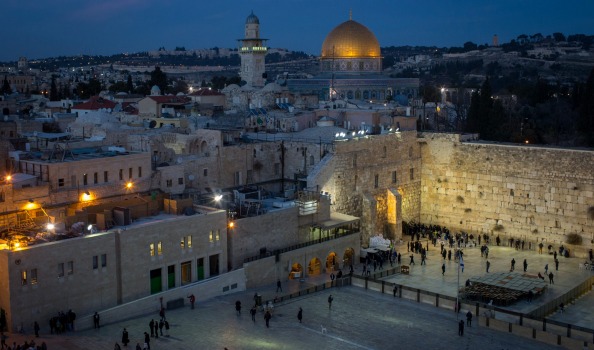For the last several years it has been increasingly common to hear Israelis and Palestinians alike say that the two-state solution to their struggles is dead and that the time has come to discuss a one-state solution. US President Donald Trump acknowledged that trend during a news conference last week with Israeli Prime Minister Benjamin Netanyahu by saying that he is “looking at two states and at one state” while remaining open to whichever suits the parties.
There’s just one problem: “One-state solution” means something almost completely different on each of the two sides. Years of negotiation and debate have created the general contours of a two-state solution, but when people speak of one-state options, they lack that common ground.
On Thursday, US Ambassador to the United Nations Nikki Haley said the US supports a two-state solution, but “we are thinking out of the box as well.” What might that mean for the Palestinians, for starters? (I’ll restrict this discussion to vaguely realistic visions that could be reached by compromise, not force – so I won’t consider the disappearance of either the Jewish state or the Palestinian national cause.)
The Palestinian ideal
For most Palestinian one-staters, the ideal is a democratic state offering equal citizenship rights to everyone living between the Jordan River and the Mediterranean Sea, both Jews and Arabs. The state could be federated into two parts, so that each side would enjoy a majority in its own areas. Jerusalem might be treated as its own federal unit or divided between the two federations with shared responsibility for the Temple Mount.
In this picture, all citizens would be allowed to travel freely through the state and across federation lines. Probably all would be allowed to live wherever they chose.
This version of Israel-Palestine wouldn’t necessarily have a Jewish majority. Palestinians know that Israelis are afraid a single state would eventually be taken over by a Palestinian majority, which would make them into a minority.
The solution would be a constitution that guaranteed the federation’s continued existence even as demographics change. The Israeli part would keep its Jewish character no matter what.
Read the full article by Noah Feldman at the Australian Financial Review.

